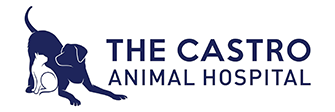Preventive Dental Care
Routine dental care matters.
A pet's dental health is just as important as their physical health, however, it often goes overlooked. The reality is that oral hygiene plays a huge part in ensuring your pet lives a long, healthy life.
Dental disease is a common but serious problem. Approximately 80% of pets will develop it by the time they’re three and if left untreated, it will spread to the tooth socket and destroy bone. It also allows bacteria to travel from the mouth and through the body which can affect the heart, lungs, kidneys, and liver and cause chronic health issues.
The good news is that dental disease is entirely preventable and with regular preventive care, you can help your pet avoid the pitfalls associated with poor oral hygiene.
How can I help my pet maintain good oral hygiene?
The best way to make sure your pet’s teeth remain healthy is by having routine annual exams. Whether you have a puppy or kitten with a mouth full of baby teeth or an adult pet whose teeth need to be checked for plaque, tartar, or dental disease, having a veterinarian examine them is the first step to making sure they’re in good health.
During your pet’s comprehensive physical, your veterinarian will perform a dental health assessment and make recommendations for preventive care. Sometimes this will mean performing good home preventative care, other times, it will mean scheduling an appointment for a dental cleaning or extraction.
Although we recommend brushing your pet’s teeth daily as part of a good preventive care routine, we understand that it’s not always possible. Luckily, there are other ways to maintain your pet’s oral health when you can’t brush their teeth.
- Utilize water additives
- Give your pet a dental chew every other day
- Choose food and treats that control plaque and promote dental health
- Schedule dental cleanings as recommended by your veterinarian
Basics of the Dental Procedure
Anesthesia
For proper dental cleaning and treatment general anesthesia is required. This allows for a thorough oral exam, cleaning and polishing of all tooth surfaces, and other procedures that may be required. We understand that anesthesia can be a concern for most clients. We take several precautions to be sure that anesthetic risk is minimized.
Pre-anesthetic screening includes a physical exam, blood tests, and in some instances specialized testing to identify potential risk factors. This allows us to customize the anesthesia protocol for your pet's needs. Our trained veterinary technicians and assistants monitor heart rate, respiration, and other parameters during the procedure.
IV catheters are placed prior to anesthesia to allow for easy administration of fluids and medications. For patients requiring more involved procedures, local anesthesia as well as other pain medication is administered for comfort.
Use caution when considering 'no-anesthesia' teeth cleaning services at pet stores or elsewhere. Although the teeth may look better in appearance, many problems may go undetected and in some cases, more harm than good may be done. It is illegal for dental treatments to be performed by anyone other than a veterinary professional in the state of California.
Cleaning/polishing
The teeth are cleaned (including below the gum line) with an ultrasonic scaler and then polished.
Periodontal Evaluation/ Oral Radiography
The gums are inspected and problem areas are identified. Radiographs (x-rays) help to identify bone loss or tooth root disease that may not be readily apparent. Antibiotic therapy may be applied in areas where 'pockets' have developed.
Extractions
Sometimes it may be necessary to extract badly diseased or damaged teeth. Ultimately, removing these teeth will result in a more comfortable patient and a healthier mouth.
Home Care
Introducing your pet to regular brushing is the ideal way to prevent dental problems after a proper cleaning. There are many dental products available to suit every pet's needs including treats and special diets. We can help you in deciding what works best for you! For information regarding dental products: http://www.vohc.org/.
Call us at (415) 658-7745 to schedule your pet’s oral health assessment or dental cleaning.

